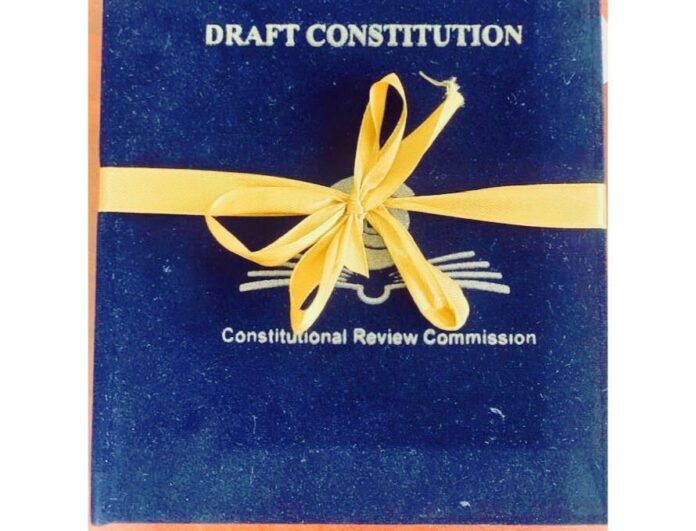By: D. A. Jawo
As a follow-up to my last piece on the 2024 Draft Constitution (the Dawda Jallow Draft), I find it quite necessary to highlight some of the issues that seem to make it even worse than the 1997 Constitution.
At a casual look at the draft, like many other people, I was of the view that in spite of the numerous changes to the 2020 draft, Gambians should be ready to compromise and allow it to pass and be put before the people in a referendum. However, after a thorough examination, it is quite evident that it is not only meant to further perpetuate President Adama Barrow in power, but it is also a self-serving document with the objective of giving him a wide range of powers that even former President Yahya Jammeh never had. This is certainly a complete betrayal of the wishes and aspirations that Gambians had when they risked everything to get rid of the Jammeh dictatorship and usher in a new dispensation.
It is quite hard to understand how the President would still insist on going against the grain and continue to retain the power and sole authority to appoint members of his cabinet and other senior government officials without the involvement of the legislature. It is quite obvious that such a system has been open to abuse, with people being appointed simply for their family or other personal connections rather than their skills or competence. It is therefore quite necessary that the President’s nominees for such positions should be submitted to the National Assembly for vetting to ensure that they do not just represent personal or other parochial interests but are ready to serve the whole nation.
Another disappointing clause is the retention of the President’s powers to nominate five members to the National Assembly, two of whom shall become Speaker and Deputy Speaker. According to the most basic democratic principles, the three arms of government—the executive, legislature, and judiciary—are supposed to operate in parallel, and therefore, it is preposterous for the head of the executive to be given the power and sole authority to impose a leader on the legislature, which is supposed to act as a check on the other two arms of government. It is therefore unacceptable for the President to still continue to nominate people to the National Assembly who represent no one but themselves and partisan interests. It is no doubt the reason why the drafters of this document chose to expunge Chapter V of the original draft; Leadership and Integrity, because that attribute seems to have been completely ignored in the draft. That alone is enough reason to reject this self-serving draft.
It is also quite disappointing to see in Clause 72 (3) of the Dawda Jallow Draft that the President is still given the power to appoint the Chairman and other commissioners of the proposed Independent Boundaries and Electoral Commission (IBEC), which we are told should be done in “consultation with the Judicial Service Commission and the Public Service Commission.” Of course, it is quite obvious that such consultations with those two service commissions are mere formalities because most of the members of those institutions are his hand-picked appointees who are ready to jump at his command without asking how high.
Therefore, the credibility of the IBEC can only be maintained if the National Assembly and other stakeholders are involved in the appointment of the Chairman and other commissioners rather than giving all that power to the President. That can simply be likened to one of the players of a football match being given the power to appoint the referee. We are all aware that there has been a serious loss of confidence in the independence and impartiality of the present Independent Electoral Commission (IEC) and its ability to conduct hitch-free elections, and therefore, maintaining the status quo would certainly not be welcomed by most people.
Another notable absence in the Dawda Jallow Draft is any mention of the much-anticipated need for diaspora voting. It is quite obvious that the Barrow administration is not quite keen to empower the diaspora, apparently because the regime is of the view that a majority of them are ‘anti-government.’
Therefore, in view of the above observations and many other faults with the Dawda Jallow Draft, it would be quite hard to see how Gambians would endorse such a document to become the constitution of a serious democratic nation.
Therefore, looking at all the pros and cons of the Dawda Jallow Draft, it is now quite evident that it is not fit for purpose and it should be thrown out, just like President Barrow’s supporters in the National Assembly did with the 2020 Draft.




